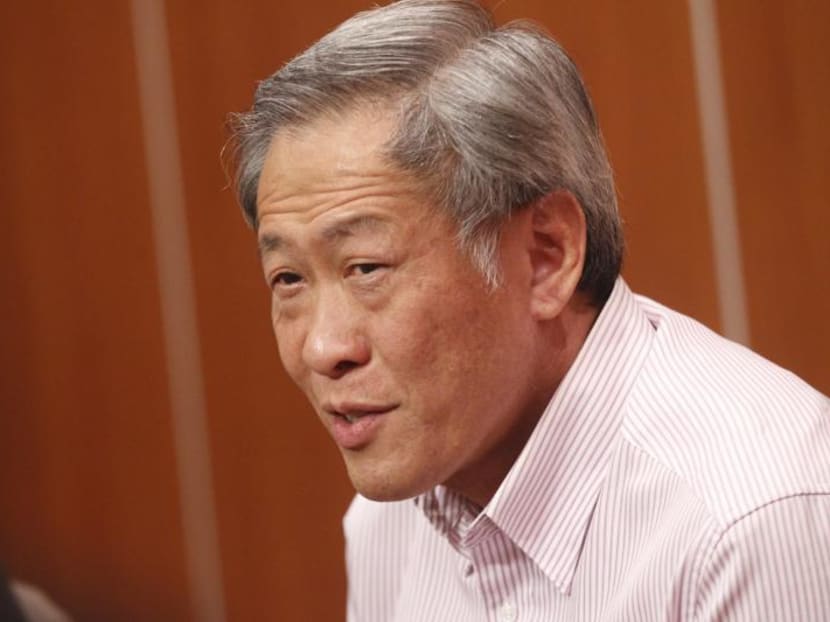Strong multilateral frameworks will help reduce regional uncertainty: Singapore’s Ng Eng Hen
SINGAPORE - While crises and conflicts are unpredictable, the proactive building of strong relations and multilateral frameworks that build trust and confidence through cooperation and consensus can help reduce uncertainty in the region, said Defence Minister Ng Eng Hen this morning (June 1).
SINGAPORE - While crises and conflicts are unpredictable, the proactive building of strong relations and multilateral frameworks that build trust and confidence through cooperation and consensus can help reduce uncertainty in the region, said Defence Minister Ng Eng Hen this morning (June 1).
Speaking during the Shangri-la Dialogue, Dr Ng said the tense atmosphere in the region and lack of strategic trust among Asian countries pointed to the need to have an open and frank dialogue on security challenges, before they can be meaningfully addressed.
Among other platforms which can contribute to achieving such trust, Dr Ng said, were the annual Shangri-la Dialogue session, humanitarian assistance and disaster relief missions, the Asean Defence Ministers Meeting (ADMM) as well as the ADMM-Plus, which includes eight extra-regional partners.
In his speech this morning, Dr Ng also touched on challenges faced by Asia and the risks of conflagaration.
Defence spending in Asia has gone up, against world trends, he noted, and militaries in Asean have also pledged to increase if not maintain their defence spending.
“This militarisation of many countries within Asia on this scale has no historical precedent,” Dr Ng said.
But there are also less safeguards and structures to mitigate fall-outs in Asia, compared to Europe, he noted.
One “stark deficit” in Asia when it comes to avoidance of conflict, Dr Ng highlighted, was the collective “never again” resolve that bound European countries after both World Wars, which translated into political will to create formal structures and alliances to avoid war.
Asian countries only share a common struggle for their independence, which was disparately fought.
With the countries relatively young, and civil and institutions “still evolving and inchoate”, there is “no binding aversion to regional conflict.”
“The restraining force hitherto has been economic development for each own’s interest, first supported in large measure by the US as it provided the strategic security umbrella for the region, and subsequently fuelled by China’s economic development in the last two decades,” said Dr Ng.
While the converging economic interests of different Asian countries have indeed brought wealth and progress to the region, uncertainties exist over scenarios such as when there is competition for resources, when sovereignty disputes escalate, when the engines of growth stall, and when existing social and political structures are challenged due to a rising middle class.
The political challenge before Asian countries, Dr Ng said, to ensure that their individual aspirations and ambitions intersect as widely as possible to protect the global commons of peace and stability.
“Asia must therefore build more resilient mechanisms to forge consensus and political will to prevent if not mitigate conflicts. Asia must not backslide into a fractious environment, riven by confrontational nationalism and lack of mutual trust,” he added.







